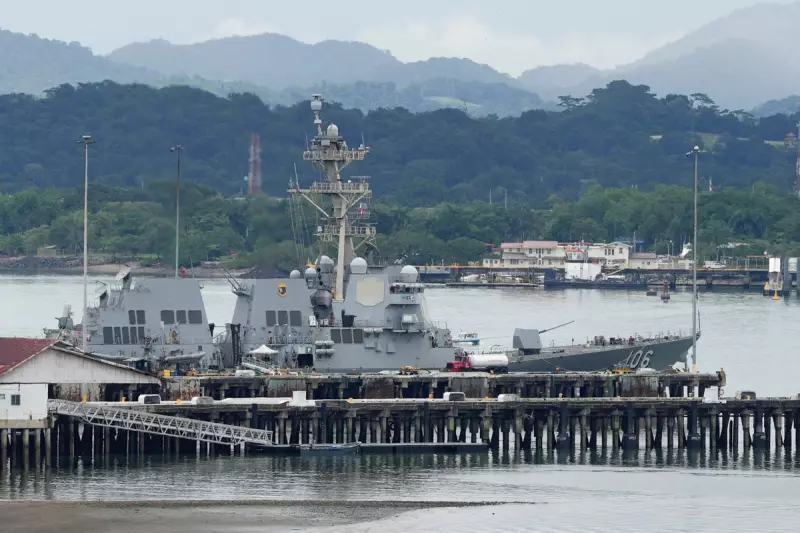
In a startling revelation that has sent shockwaves through diplomatic circles, former President Donald Trump allegedly proposed an aggressive military-style drug interdiction operation across Caribbean waters during his presidency. The controversial plan, which would have seen US forces taking unprecedented action against suspected drug traffickers, has drawn sharp criticism from multiple quarters.
Survivors' Chilling Warnings
Multiple survivors of previous failed anti-drug operations have come forward with grave concerns about Trump's proposed strategy. Their firsthand accounts paint a disturbing picture of potential collateral damage and human rights violations that could result from such aggressive tactics.
"We've seen this movie before, and it ends with innocent people getting hurt," one survivor told investigators, speaking on condition of anonymity due to ongoing security concerns.
The Proposed Operation
According to documents and insider accounts, the planned operation would have involved:
- Enhanced naval patrols in international Caribbean waters
- Increased aerial surveillance of suspected trafficking routes
- More aggressive boarding and seizure protocols
- Expanded intelligence-sharing with regional governments
Critics argue that such measures could easily cross the line into violating international maritime law and sovereign territories.
Human Rights Implications
Human rights organizations have expressed alarm at the potential consequences of implementing such a strategy. "When you militarize drug enforcement in international waters, you inevitably create situations where due process and human rights protections are compromised," explained one human rights advocate familiar with the proposal.
The plan raises serious questions about the balance between drug enforcement and civil liberties, particularly given the complex jurisdictional issues surrounding maritime law enforcement.
Regional Diplomatic Fallout
Caribbean nations have historically been sensitive to perceived overreach by larger powers in their territorial waters. The revelation of Trump's proposed operation has already strained diplomatic relations with several key regional partners who were not adequately consulted about the potential escalation.
One regional diplomat described the proposal as "a throwback to colonial-era gunboat diplomacy that has no place in modern international relations."
Lessons from Past Failures
Survivors of previous aggressive anti-drug operations emphasize that history shows such approaches often yield limited success while creating significant humanitarian costs. Their testimonies highlight how innocent fishermen, recreational boaters, and coastal communities frequently become caught in the crossfire of well-intentioned but poorly executed enforcement actions.
As the debate over effective drug enforcement strategies continues, these survivor accounts serve as crucial reminders of the human cost behind policy decisions made in distant government offices.





